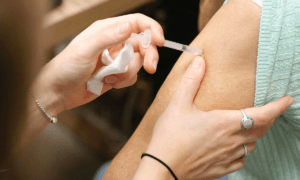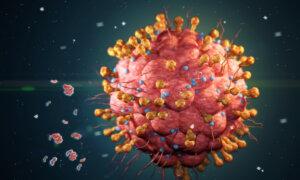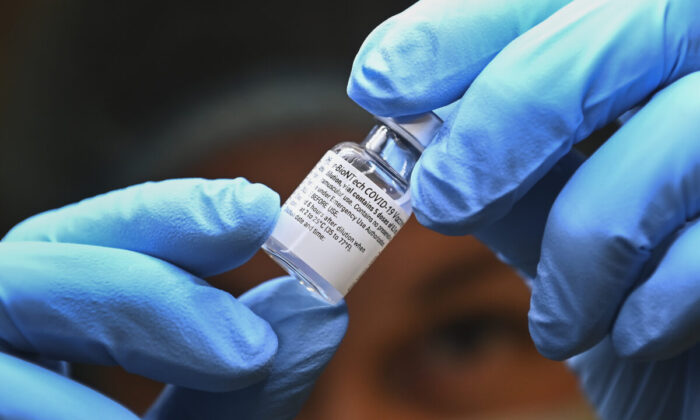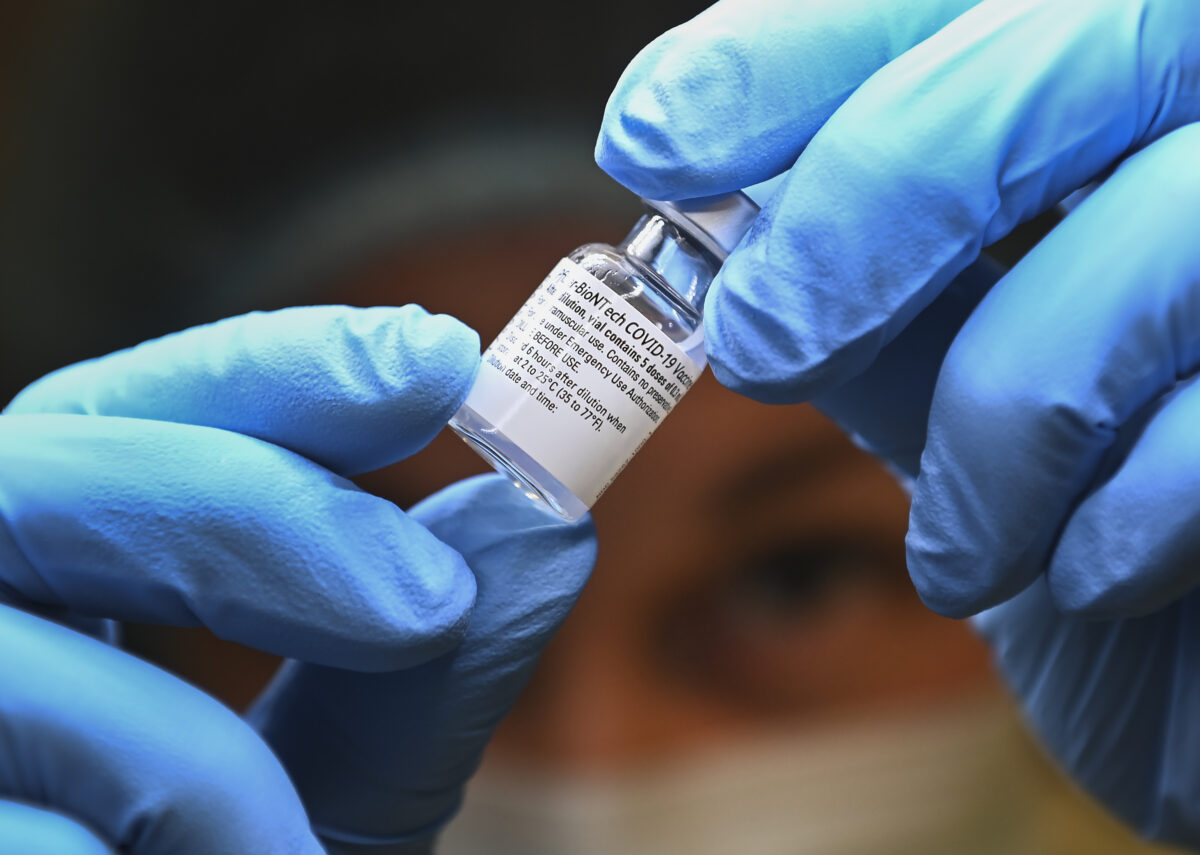Urinary and Prostatic Complications Occur After COVID and Its Vaccines: Studies
Urinary symptoms of incontinence, urinary tract diseases, urinating hesitancy, and frequent urination have all been reported.
COVID-19 infections and vaccines for it have been linked to urinary and prostatic complications.
“Male patients infected with SARS-CoV-2 are more likely to have deterioration of LUTS (lower urinary tract symptoms). This association is not without biological plausibility,” the authors concluded.
Receptors for SARS-CoV-2 and its superficial spike protein are abundant in the prostate, this therefore “renders it a target for SARS-CoV-2, leading to inflammation and therefore these outcomes of interest,” the authors added.
Urinary Complications After COVID or Vaccination
Urinary symptoms of incontinence, urinary tract diseases, urinating hesitancy, and frequent urination have all been reported either after COVID infections or after inoculation with its vaccines.
Since the urethra passes through the prostate, enlarged prostates can impede the flow of urine, causing urinary hesitation, infections, and retention.
In the Hong Kong study, the authors reasoned that the urinary complications caused by an enlarged prostate are due to the virus causing inflammation in the genito-urological area. They explain that the SARS-CoV-2 viruses may be binding to ACE-2 and TMPRSS2 receptors in the testes and prostate, causing damage. The relatively high expression levels of ACE-2 in male and female reproductive organs suggest that these organs are potentially vulnerable to SARS-CoV-2 infection.
Urinary incontinence is another common side effect of the COVID-19 vaccine. Psychiatrist Dr. Amanda McDonald, who has treated several hundred patients for COVID and post-vaccine symptoms, told The Epoch Times that incontinence is quite common among her vaccinated patients.
“I have had some twenty-something-year-old women with incontinence and they’re just being told that this is normal,” Dr. McDonald said, “I have had six, seven women in a row coming in telling me the same story and saying my primary physician sent me here to talk to my psychiatrist because they think it’s all in my head.”
Dr. McDonald has mainly prescribed ivermectin as treatment for her patients, since ivermectin can bind to and block spike proteins.
Internal medicine physician Dr. Keith Berkowitz, who has been treating long COVID and post-vaccine patients, believes that the urinary incontinence may be due to urinary tract infections caused by a suppressed immune system.
Elevated PSA Level After COVID and Vaccination
Studies have linked both SARS-CoV-2 infection and vaccinations with a slight increase in prostate serum antigen (PSA), with the third anti-COVID vaccine dose having a more prominent impact. The clinical significance is not known yet, but some health providers like Scott Marsland from the Leading Edge Clinic suspect that it may be an indicator for prostate cancer.
A man’s PSA level is often measured through a blood test to screen for prostate cancer.
High PSA levels can be a warning signal for prostate cancer, but there are cancer-free men with high PSA levels, just as there are men with prostate cancer and normal PSA levels.
Mr. Marsland said that several of his patients who were in remission for many years had developed new-onset prostate cancer following vaccination. This has not occurred for his unvaccinated but infected patients.
He also mentioned that patients who have enlarged prostate often have urinary urgency, get up multiple times at night, and have some degree of incontinence. “this can be at a really young [age], and it was not something that they had an issue with before they had COVID or before they got vaccinated.”
This article has been archived for your research. The original version from Epoch Times can be found here.






